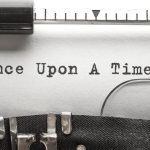“There are bad actions. There are bad thoughts. But there is no such thing as bad words.”
I’m not exactly the type of person who you would expect to quote George Carlin. He was a hippy who did drugs daily for much of his life and used his raunchy comedy routine to take a stance on social issues. I’m a university professor and basketball mom. The comedian and I weren’t exactly cut from the same cloth. But there’s one thing the late comedian and I agree on—language.
 Carlin was a lover of language who studied and memorized a dictionary as a boy. He understood words and used them creatively to support a higher level of enlightened thinking than most expected from a comedian of his time. Saying Carlin was anti-establishment probably is an understatement. He purposely spoke out against anything in the majority, saying he loved groups of people, but he didn’t want to be part of any of them.
Carlin was a lover of language who studied and memorized a dictionary as a boy. He understood words and used them creatively to support a higher level of enlightened thinking than most expected from a comedian of his time. Saying Carlin was anti-establishment probably is an understatement. He purposely spoke out against anything in the majority, saying he loved groups of people, but he didn’t want to be part of any of them.
Seven Dirty Words: The Life and Crimes of George Carlin by James Sullivan is Carlin’s life story, complete with the tale that made me a huge fan.
Carlin became my unlikely hero for his “Seven Words You Can Never Say on Television” routine. The string of obscenities in the name of comedy originally was broadcast in 1972 on a New York radio station.
The Federal Communications Commission received a complaint and prohibited the use of the words, saying they violated obscenity laws.
This, of course, just supported Carlin’s stance that it was beyond ignorant that the government chose seven random words out of the more than 400,000 in the English language and declared them offensive. In other words, it gave him even more of an excuse to use those words and ones he thought might be even more offensive in his routine. He was arrested several times for reciting these words on stage.
The Supreme Court upheld the FCC’s order in 1978, establishing a decency standard that still exists on the “public airwaves.”
As the old saying goes, “Sticks and stones may break my bones, but words will never hurt me.”
Apparently the FCC disagrees. They still think just hearing certain words can harm people.
That’s some pretty outdated shit right there.


